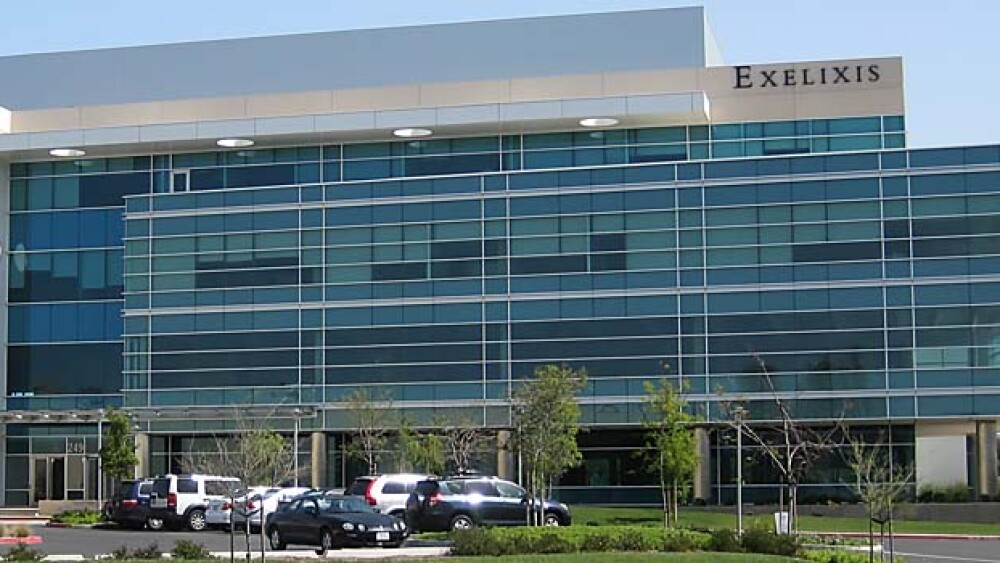Exelixis has inked a licensing agreement with Catalent to gain access to three of Catalent’s target programs with antibody and ADC candidates, the companies announced Thursday.
Courtesy of BrokenSphere/Wikimedia Commons
In its third collaboration deal this week, Exelixis has inked a licensing agreement with Catalent to gain access to three of Catalent’s target programs with antibody and ADC candidates, the companies announced Thursday.
The three candidates were developed with Catalent’s SMARTag technology. Though Exelixis did not specify the exact therapeutic areas the candidates will target, it did state they have “broad potential” in multiple solid tumor indications, including bladder, breast, lung, ovarian, pancreatic and other cancers.
The SMARTag technology platform was developed by Redwood Bioscience based on the work of Nobel Prize winner Carolyn Bertozzi. According to the press release, the SMARTag platform “overcomes the limitations associated with traditional protein chemistries that produce heterogeneous products” by providing site-specific protein modification and linker and payload technologies for ADCs and other bioconjugates.
In addition to the $100 million in upfront payments Exelixis agreed to pay to Cybrexa and Sairopa on Tuesday, the company will pay Catalent $30 million upfront in exchange for the exclusive rights to the programs. Catalent will also be eligible for development and sales milestone payments and sales-based royalties.
Though Exelixis did not give many specific details in the announcement, the company plans to use a “variety of technologies” it has acquired through its partner network to develop each of the antibodies as an ADC or other biologic therapy.
This isn’t the first deal Exelixis has signed with Catalent. In September 2020, Catalent agreed to use its SMARTag technology to build ADCs with monoclonal antibodies from Exelixis’ preclinical pipeline.
A Long List of Collaborations
Though it is unusual for Exelixis to ink multiple deals in such quick succession, the company’s interest in ADCs and solid tumors is nothing new. Exelixis has been developing ADCs for years, though its efforts have ramped up considerably over the last year.
In its Q3 conference call on Tuesday, Exelixis stated one of its goals for 2022 is to advance up to five new development candidates across multiple modalities and mechanisms of small molecules and biologics.
To that end, the company has entered into more than a few deals this year, including the two deals announced on Tuesday.
In October, Exelixis expanded a clinical trial collaboration it inked in June with Bristol Myers Squibb evaluating XL092, Exelixis’ oral tyrosine kinase inhibitor (TKI) in advanced solid tumors. In July, the company signed a deal with Ryvu Therapeutics, gaining access to its STING technology platform to develop therapies across “diverse cancer indications.”
And in June, it entered into a partnership with BioInvent, gaining access to its proprietary n-CoDeR antibody library and patient-centric F.I.R.S.T screening platform to develop immuno-oncology therapeutics.
The increase in partnerships could be attributed to the financial success the company has seen recently, largely driven by cabozantinib, its “flagship molecule.” Cabozantinib is the origin of two commercial products, CABOMETYX and COMETRIQ. It has also seen large returns from COTELLIC, a formulation of cobimetinib, developed in collaboration with Roche subsidiary Genentech.





